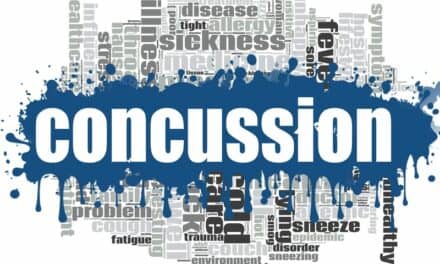A recent Concussion IQ Survey suggests that most US adults may have misconceptions and lack basic understanding about concussion.
Conducted by Abbott in partnership with KRC Research, the survey polled more than 1,000 US adults over the age of 18 about their general awareness and perceptions of concussion, according to a media release from Abbott.
The release explains that, according to the survey findings, adults are five times more likely to seek medical attention for a broken bone rather than for a concussion. Also, 6 in 10 adults don’t understand that treating a concussion includes mental rest, which may mean limiting time spent on cell phones, watching TV, and other activities that could worsen symptoms.
As well, the release explains, more than 80% of adults believe a person should not sleep and should be woken up periodically after being diagnosed with a concussion. Also, 64% of adults say they did not seek medical attention the last time they hit their head very hard, but 9 in 10 people would seek medical attention for a child.
The survey also found that almost 70% of parents would not send their child to school the day after they hit their head very hard, but more than half say they would still go to work or school themselves after a hard hit to the head.
“Based on the survey results, it is clear there is a need to build more awareness and understanding about concussion,” says Beth McQuiston, MD, board-certified neurologist and medical director, Diagnostics, Abbott, in the release.
“Parents, athletes, coaches, and beyond need to be able to recognize signs of concussion to help people seek proper care and rest,” she adds.
The release notes that there is no foolproof way to diagnose a mild brain injury, and CT scans can appear normal even if an injury has occurred. As a result, many concussions go undiagnosed and untreated.
To address this issue, the release explains, Abbott is partnering with the US Department of Defense to develop a blood test capable of evaluating potential concussions. Currently in development, the test will be designed to detect specific proteins in the blood associated with brain injury.
[Source(s): Abbott, PR Newswire]





